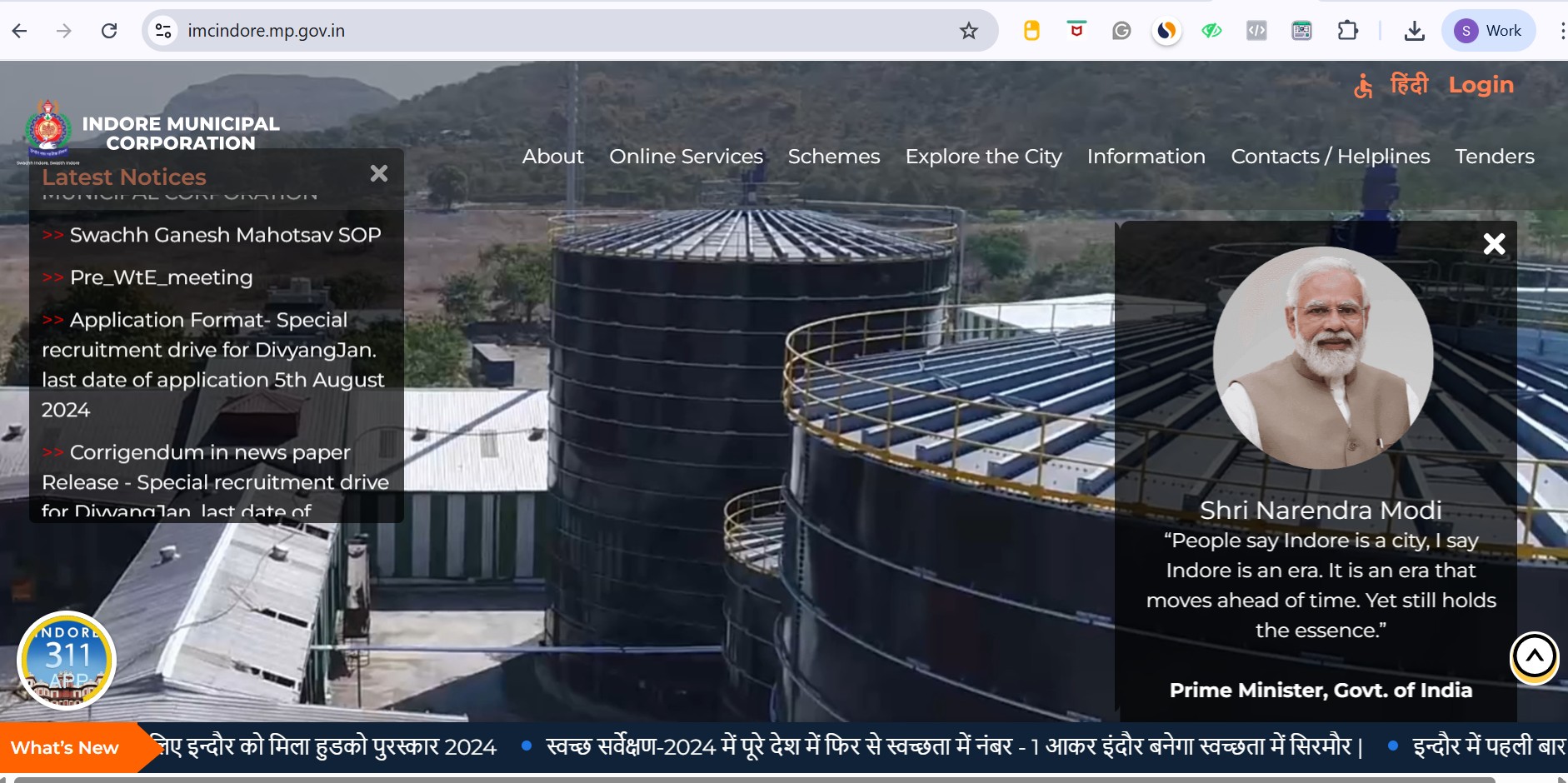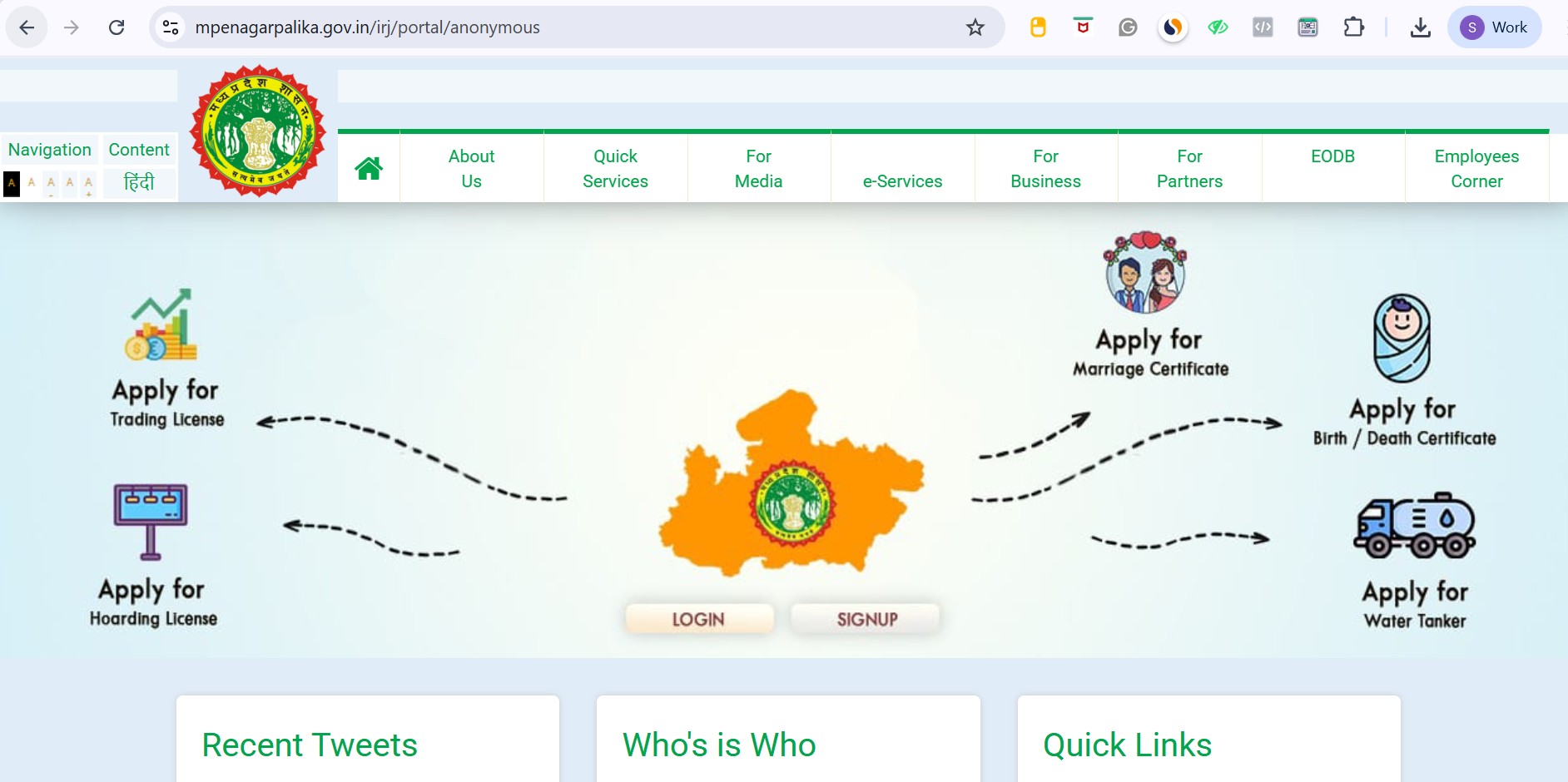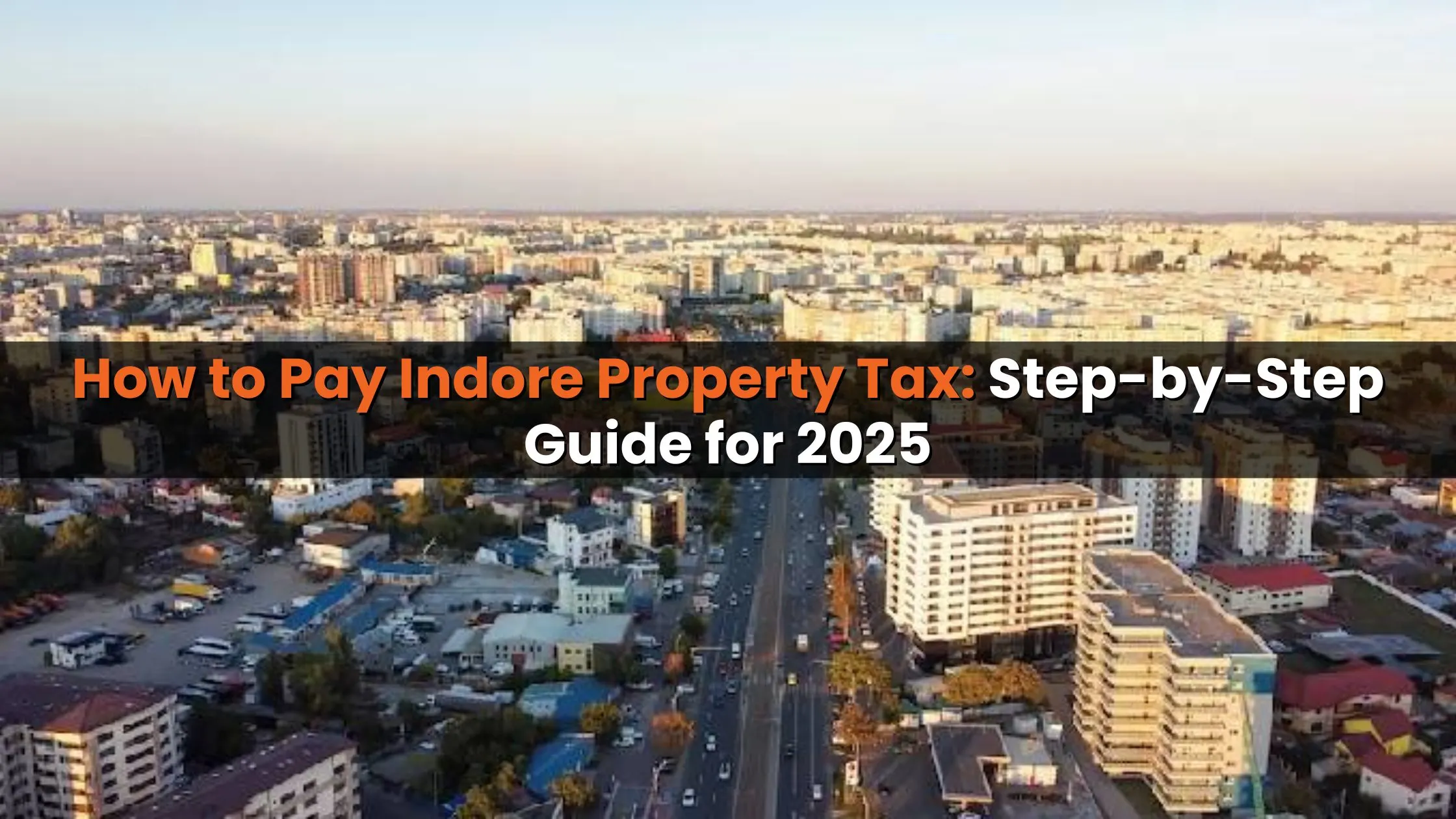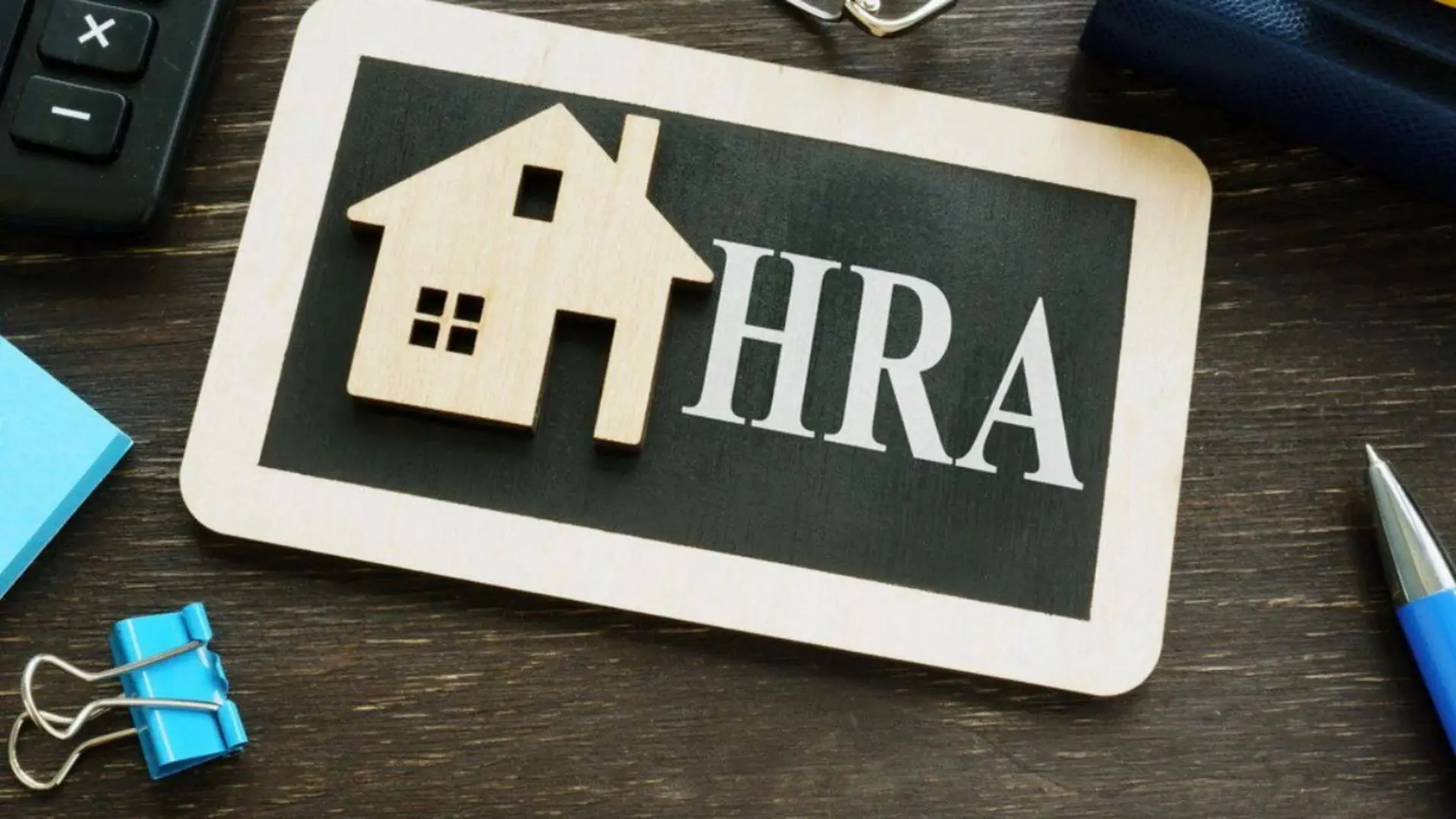Table of Content
▲- What is Indore Property Tax?
- Why Paying Indore Property Tax Matters
- Who Needs to Pay Indore Property Tax
- How to Pay Indore Property Tax Online
- How to Find Your Property ID
- Offline Payment of Indore Property Tax
- How Indore Property Tax is Calculated
- Rebates and Penalties
- Instalment Facility
- No Dues Certificate and Additional Services
- Latest Updates on Indore Property Tax
- Contact Information
- Why Timely Payment is Important
- Conclusion
Owning a home in Indore has been one of my proudest milestones, but understanding the property tax system that comes with it initially felt confusing. Like many homeowners, I had questions:
- How much is the Indore Property Tax?
- How is it calculated?
- Can I pay it online, or do I need to visit the IMC office?
I asked all these questions too. In 2025, after exploring the Indore Municipal Corporation (IMC) portals, checking my property details, and making my first online payment from home, I realized the process is far simpler than it seems once you know the steps.
In this guide, I’ll walk you through everything you need to know about Indore Property Tax in 2025 from calculation methods and online/offline payment options to rebates, deadlines, and the latest updates from the IMC. By the end, you’ll feel confident handling your property tax smoothly and on time.
What is Indore Property Tax?
Indore Property Tax is a yearly levy imposed by the Madhya Pradesh Government and collected by the Indore Municipal Corporation (IMC). The funds collected are used to maintain essential civic amenities such as roads, drainage systems, street lighting, waste management, and parks within the municipal limits.
Every property owner in Indore whether owning residential, commercial, or vacant land must pay this annual tax. It ensures that the city continues to function efficiently and that civic infrastructure keeps improving year after year.
Also Read: India’s First Digital Address System with QR Codes Launched in Indore
Why Paying Indore Property Tax Matters
Timely payment of Indore Property Tax is more than just a civic obligation; it’s your contribution to the city’s development. The funds go toward maintaining public services that make Indore a clean, green, and smart city.
Failure to pay property tax on time may result in penalties, disconnection of civic utilities, or even legal notices from IMC. Keeping your tax payments updated also helps maintain a clean record for property transactions or resale.
Who Needs to Pay Indore Property Tax
Every individual, business, or institution owning property within IMC limits must pay Indore Property Tax annually. The tax applies to:
- Residential buildings and apartments
- Commercial properties and offices
- Industrial units and warehouses
- Vacant plots of land
Even if a property is rented out, the owner remains responsible for paying the tax to the Indore Municipal Corporation.
How to Pay Indore Property Tax Online
IMC has made it extremely convenient for residents to pay property tax online through its digital portals. You can choose between two official options the IMC website and the Madhya Pradesh e-Nagar Palika platform.
Option 1: Pay via IMC Website
Follow these simple steps to make your payment:

- Visit the official portal: https://imcindore.mp.gov.in/
- Click on “Pay Your Bills and Tax Online”
- Select Property Tax from the menu
- Enter your Property ID or Old Property ID
- Verify your property details and the amount payable
- Provide your mobile number and email ID
- Click “Pay Online” and choose your preferred payment method:
- Debit/Credit Card
- Net Banking
- UPI (Google Pay, Paytm, PhonePe)
- NEFT / RTGS
- After successful payment, download and save the receipt for reference
This digital process ensures your payment is securely processed and instantly recorded in the municipal system.
Option 2: Pay via E-Nagar Palika Portal
If you prefer, you can also pay through the Madhya Pradesh Government’s E-Nagar Palika platform:

- Visit https://www.mpenagarpalika.gov.in
- Enter your 10-digit Property ID and click Search
- Review your property details and tax due
- Click Pay Now and complete the transaction using your preferred mode of payment
- Note down the transaction ID and download your payment receipt
Both portals are linked to the same municipal database, so you can use whichever is more convenient.
How to Find Your Property ID
If you don’t know your property ID, here’s how to locate it online:
- Go to https://imcindore.in
- Click on “Search Your Property ID” under Services
- Enter your city name, ward number, and property details (in English or Hindi)
- Click Search Property to retrieve your property details and tax record
Offline Payment of Indore Property Tax
For those who prefer traditional methods, Indore Property Tax can also be paid offline:
- Visit your nearest Indore Municipal Corporation office
- Provide your property ID and supporting documents
- Pay the tax via cash, cheque, or demand draft
- Collect your official receipt and keep it safely for future use
This method is ideal for senior citizens or those who prefer in-person verification.
How Indore Property Tax is Calculated
The IMC uses a simple formula based on plinth area (built-up area) and monthly rental value (MRV) to determine the tax amount.
Formula for Residential Properties:
Property Tax = (Plinth Area × MRV × 12 × 0.17–0.30) – [10% (depreciation)] + [8% (library cess)]
Example:
If your home measures 1,000 sq. ft and the MRV is ₹10 per sq. ft:
→ 1,000 × 10 × 12 × 0.17 = ₹20,400
After applying depreciation and library cess, your total Indore Property Tax would be approximately ₹22,000 annually.
This amount can vary depending on your property’s location, usage type, and age.
Rebates and Penalties
Early Payment Rebates
The Indore Municipal Corporation rewards timely taxpayers with attractive rebates:
- 6.5% rebate on property tax for early payment
- 6% rebate on water tax when paid together
Lok Adalat Surcharge Waivers
During special Lok Adalat sessions, IMC offers additional rebates:
|
Tax Dues Range |
Rebate on Surcharge |
Remarks |
|
Up to ₹50,000 |
100% waiver |
Full waiver if dues cleared |
|
₹50,000–₹1 lakh |
50% waiver |
Half surcharge waived |
|
Above ₹1 lakh |
25% waiver |
One-fourth surcharge waived |
Late Payment Penalties
Delays in paying Indore Property Tax attract surcharges or interest as per IMC rules, so it’s best to clear dues early.
Instalment Facility
Normally, property tax must be paid in one instalment. However, during Lok Adalat events, IMC allows taxpayers to pay their dues in two instalments (50% each) to encourage timely compliance.
No Dues Certificate and Additional Services
Homeowners can check their property tax account, download past receipts, or obtain a No Dues Certificate directly from the IMC portal.
Steps:
- Visit https://imcindore.in
- Under “Property Tax,” click No Dues Certificate
- Enter your Property ID and choose “Apply” or “Download”
- Save your certificate once processed
This feature is especially useful during property transfers or loan applications.
Latest Updates on Indore Property Tax
As part of its digital improvement plan, the Indore Municipal Corporation announced new features in June 2024:
- Introduction of Auto-Debit System for direct deduction of property tax from linked bank accounts.
- Launch of SMS Alert Facility to notify residents of upcoming tax dues and payments.
These updates are expected to simplify compliance and boost timely payments across the city.
Also Read: Indore Metro: Routes, Map, Launch Dates, and Urban Development Impact
Contact Information
Indore Municipal Corporation (IMC)
📍 Shivaji Market, Nagar Nigam Square, Indore – 452001
📞 +91 731-2535555 (9 AM – 5 PM)
✉️ Email: nn.indore@mpurban.gov.in
Why Timely Payment is Important
Paying your Indore Property Tax on time not only avoids penalties but also ensures uninterrupted municipal services. Your contribution supports better infrastructure, sanitation, and development projects across the city. It also maintains your property’s legal standing and helps if you ever plan to sell or lease it.
Conclusion
With the IMC’s online and offline payment facilities, paying Indore Property Tax in 2025 has never been easier. Whether you prefer digital payments through the official portals or visiting the municipal office in person, make sure to clear your dues before the deadline to enjoy rebates and avoid penalties. Regular compliance keeps your property records up to date and contributes to Indore’s growth as one of India’s most well-managed smart cities.







_1770976628.webp)

_1771582392.webp)
_1771577585.webp)
Ans 1. Indore Property Tax is an annual levy imposed by the Madhya Pradesh Government and collected by the Indore Municipal Corporation (IMC) to maintain civic services like roads, drainage, street lighting, and parks.
Ans 2. Every property owner in IMC limits must pay the tax, including owners of residential, commercial, industrial properties, and vacant land. Even rented properties require the owner to pay the tax.
Ans 3. You can pay via the IMC portal (imcindore.in) or the Madhya Pradesh e-Nagar Palika platform (mpenagarpalika.gov.in) using debit/credit cards, net banking, UPI, or NEFT/RTGS.
Ans 4. Visit IMC’s Property ID search page, enter your city name, ward number, and property details, then click “Search Property” to retrieve your ID and tax record.
Ans 5. Yes, you can visit your nearest IMC office, provide your Property ID, pay via cash, cheque, or demand draft, and collect the official receipt.
Ans 6. Tax is calculated using the plinth area and monthly rental value (MRV) of the property. The formula includes depreciation and additional cesses:Property Tax = (Plinth Area × MRV × 12 × Rate) – Depreciation + Library Cess
Ans 7. Yes. IMC offers:6.5% rebate on property tax for early payment6% rebate on water tax if paid togetherLok Adalat surcharge waivers depending on tax dues
Ans 8. Late payments attract penalties or interest, and unpaid taxes may affect civic utilities or legal property transactions.
Ans 9. Yes, you can apply or download a No Dues Certificate via the IMC portal, which is useful for property transfers or loan applications.
Ans 10. IMC introduced an Auto-Debit System and SMS alerts in 2024 to simplify payments and notify residents of upcoming dues.